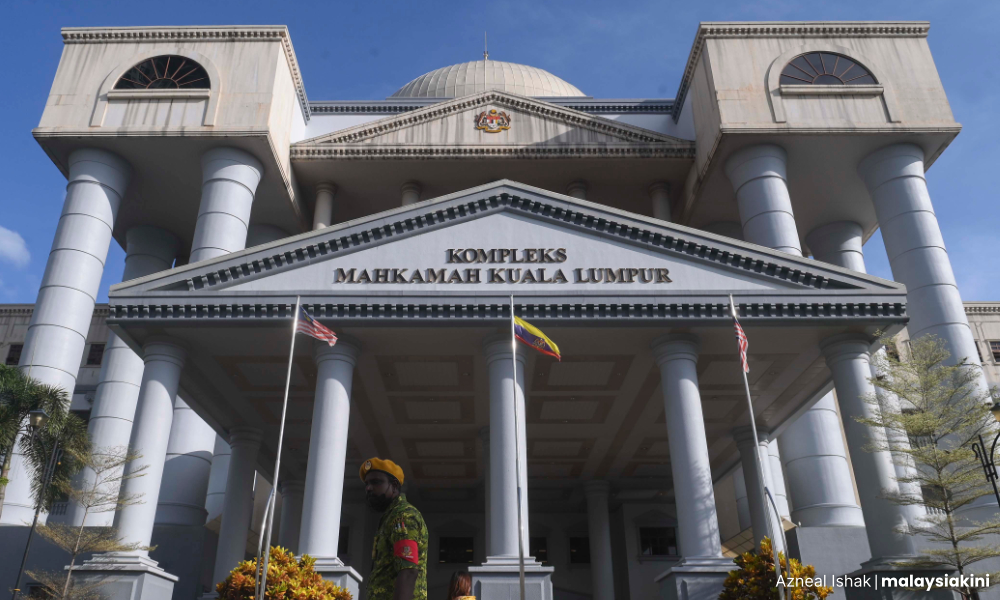Perikatan Nasional has joined the chorus pressuring the police to continue their investigation into the allegation that a deaf-mute e-hailing driver was purportedly assaulted by a VVIP's bodyguard.
But to be fair to the police, I was made to understand that the police investigation is still ongoing. Anyway, to remove any doubt, perhaps the police need to inform the inquisitive public of the current status of the investigation and when such an investigation would be expected to be duly completed.
Has the alleged culprit, for instance, been summoned to the police station for his statement to be recorded? The victim initially lodged a police report against the alleged assailant claiming that he had been assaulted by the bodyguard of a member of a royal family after he was asked to move his car while waiting in the lobby of a five-star hotel at KL Sentral.
Legally speaking, when a person lodges a police report, our police forces have the duty and responsibility to investigate the report.
Under the law, any assault against a person is penalised and punishable by law. It is criminal in nature and comes under the purview of the police. The police investigate and the Attorney-General’s Chambers prosecutes and finally, the judge tries and decides the case.
That is how criminal law operates. When an assault inflicts bodily harm, it also falls under civil law, known as tort law. Such a civil offence is often called assault and battery and it is equally actionable under the law although it is non-penal in nature.
There are, however, a whole raft of differences between criminal culpability and civil liability. When a person commits any crime, he or she in fact commits an offence against the state. Hence the state has a solemn duty to protect the victim via all the state apparatus that are at its disposal.
A civil action, on the other hand, does not entail the state at all. From the get-go, it is the victim’s show altogether. They have to start the ball rolling by initiating the claim against the defendant or the tortfeasor if they wish to claim a plethora of civil remedies such as damages.
Unlike civil action where a plaintiff may always withdraw his or her claim against the defendant when, for instance, the matter has been amicably settled, as far as criminal action is concerned - as rightly pointed out by Pasir Gudang MP Hassan Abdul Karim - there is no such thing as amicable settlement.
Criminal law, as pointed out earlier, is completely a state’s business. The state controls the game.
What if complainant withdraws report?
One may ask, are the police forces required to halt the investigation assuming the victim opted to withdraw his or her report?
Technically speaking, the police still have a duty to proceed with the investigation despite the withdrawal of the police report. A force or coerced withdrawal, if any, may involve criminal elements too.
Hence any call for the police to proceed with the investigation in the present case - though it may be said to be unnecessary if the investigation is still ongoing - in my view, is legally right and sensible.
In the present case, the victim was reported to have lodged a second report stating that the matter had been resolved and that he did not want to prolong the matter. Is the matter, therefore, officially closed under the law?
Legally speaking, it is not but practically speaking, it is. Why? The prosecution of any crime would be relatively difficult if the victim indicates that he does not want to proceed with the criminal action.
This is because, in a criminal trial, the victim would become the complainant of the case, hence he may become a star witness to the prosecution.

When the victim is deemed to be a reluctant or uncooperative witness for the prosecution, the latter may face an uphill task in launching an effective prosecution and securing a conviction.
The alleged discontinuance of the police investigation or the absence of prosecution in the present case may convey a wrong message to the seriousness of the Madani government in upholding the rule of law.
Worse, the victim in the existing case is a disabled person and the alleged perpetrator is linked to a royal family. Hence we have a scenario of David v Goliath here.
Under our Federal Constitution, the rule of law is duly embodied in Article 8 which, in essence, promotes equality before the law.
In Public Prosecutor v Tengku Mahmood Iskandar & Anor [1973] 1 MLJ 128 the late Raja Azlan Shah J, in ventilating the principle of equality before the law enshrined in Article 8 of our supreme law, inter alia, remarked “...that implies that there is only one kind of law in the country to which all citizens are amenable. With us, every citizen, irrespective of his official or social status, is under the same responsibility for every act done without legal justification. This equality of all in the eyes of the law minimises tyranny.” - Mkini
MOHAMED HANIPA MAIDIN is former deputy minister in the prime minister’s department (law) and former Sepang MP.
The views expressed here are those of the author/contributor and do not necessarily represent the views of MMKtT.




No comments:
Post a Comment
Note: Only a member of this blog may post a comment.